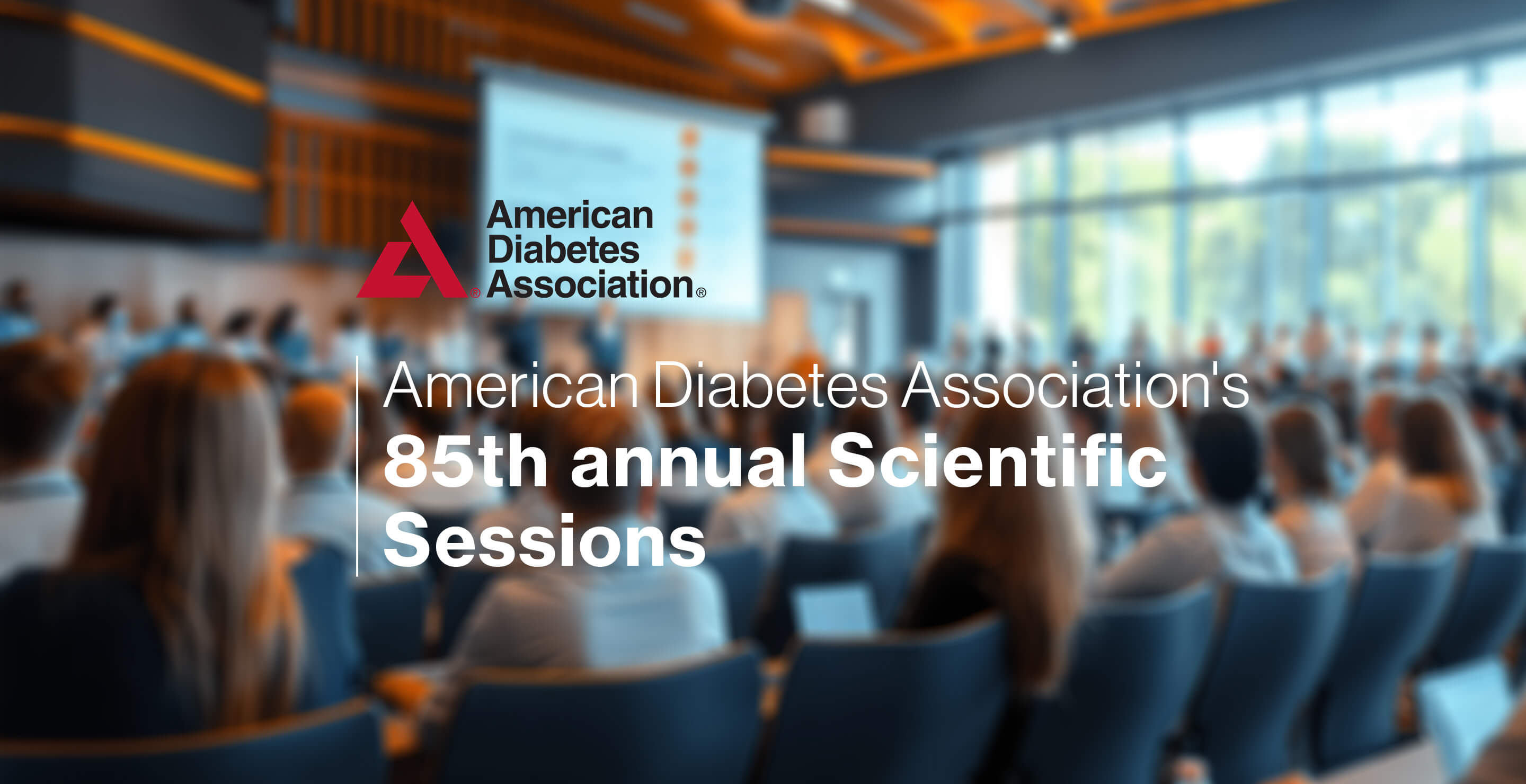Pennington Biomedical Researchers to Present at the ADA’s 2025 Scientific Sessions in Chicago
June 16, 2025 · Baton Rouge, LA
The American Diabetes Association’s 85th annual flagship meeting will feature international researchers to share the latest in diabetes research and prevention
BATON ROUGE – Researchers from Pennington Biomedical Research Center are scheduled to present their latest findings in diabetes research and treatment at the American Diabetes Association’s (ADA) flagship conference, the 85th annual Scientific Sessions taking place June 20 – 23 in Chicago.
The ADA’s Scientific Sessions is the world’s largest scientific meeting focused on diabetes research, prevention and care, where Pennington Biomedical researchers will be among the 11,000 leading physicians, scientists, health care professionals and other attendees from around the world. At the conference, researchers will unveil cutting-edge research, treatment recommendations, and advances toward a cure for diabetes.
"Our researchers are driven by their mission – advancing metabolic health and improving lives affected by diabetes and metabolic diseases," said John Kirwan, PhD, Executive Director of Pennington Biomedical. "I'm excited to see them present their important discoveries at the 85th annual ADA Scientific Sessions in Chicago. They'll represent Pennington Biomedical brilliantly, just as they do every day here in Louisiana."
During the Scientific Sessions, the researchers from Pennington Biomedical will present their latest research in oral presentations, symposiums and poster presentations. During the poster sessions, the following will be presented by Pennington Biomedical researchers:
- “The β-Adrenergic Receptor SGK1 Contributes to the Activation of the Malate-Aspartate Shuttle in Brown Adipocytes by Stabilizing GOT1 Protein” by Ji Suk Chang, PhD, Associate Professor in the Gene Regulation and Metabolism Laboratory.
- “Joint Effect of Hepatic Steatosis Index and Triglyceride Glucose Index on Cardiorenal Outcomes—A Real-World Study” by Yun Shen, MD, Assistant Professor in the Chronic Disease Epidemiology Laboratory.
- “Changes in β-Cell Mass among Participants with Obesity Following Different Weight Loss Strategies” by Hongyan Sun, PhD, Postdoctoral Fellow in the Islet Cell Biology Laboratory.
- “1593-P - GI Exposure Is Required for the Leptin Lowering Effect of Ethanol Treatment” by Arline Narez, Prospective MD candidate and Biomedical Research Associate in the Neurobiology of Metabolic Dysfunction at Pennington Biomedical.
Pennington Biomedical researchers will participate in a variety of symposiums and panel discussions, including:
- The “ExerciseRx—Still Relevant for Diabetes in the Modern Age of Pharmacotherapy?” panel discussion, which will be chaired by Timothy S. Church, MD, PhD, Adjunct Professor at Pennington Biomedical. Dr. Church will also chair the “Physiologic Adaptations to Exercise in Diabetes” Symposium.
- The “Can We Improve the Quality of Weight Loss by Augmenting Fat Mass Loss while Preserving Lean Mass? The BELIEVE Study of Bimagrumab + Semaglutide” symposium, with Steven B. Heymsfield, MD, Professor in the Metabolism and Body Composition Lab, presenting the “BELIEVE Study Efficacy and Safety Results – Weight Loss and Body Composition,” component.
- The “Major Advances and Discoveries in Diabetes—Year in Review” Symposium, with Eric Ravussin, PhD, Douglas L. Gordon Chair in Diabetes and Metabolism and LSU Boyd Professor, presenting the “Translation Research” component.
- The “Efficacy and Safety of CagriSema 2.4mg/2.4mg in Adults with Overweight/Obesity – The REDEFINE 1 and REDEFINE 2 Clinical Trials” Symposium, which will be chaired by Donna H. Ryan, MD, Professor Emerita. Dr. Ryan will also present in the “Optimizing Dose Escalation Improved Tolerability—Advancing into MARITIME Phase 3” Symposium.
For the oral presentation component of the conference, Analisa L. Taylor, BS, former
student in the Integrated Physiology and Molecular Medicine Laboratory, will present
“Miro1 Negatively Regulates Skeletal Muscle Insulin Action in Mice with Diet-Induced
Obesity and Hyperglycemia” board for the “Molecular and Cellular Mechanisms Driving
Muscle Atrophy and Dysfunction” oral presentation.
For more information contact:
Joe Coussan, Media Relations Manager, joe.coussan@pbrc.edu, 225-763-3049 or Ernie Ballard, Senior Director of Communications & Marketing, ernie.ballard@pbrc.edu, 225-263-2677.
About the Pennington Biomedical Research Center
The Pennington Biomedical Research Center is at the forefront of medical discovery as it relates to understanding the triggers of obesity, diabetes, cardiovascular disease, cancer and dementia. Pennington Biomedical has the vision to lead the world in promoting nutrition and metabolic health and eliminating metabolic disease through scientific discoveries that create solutions from cells to society. The Center conducts basic, clinical and population research, and is a campus in the LSU System.
The research enterprise at Pennington Biomedical includes over 600 employees within a network of 44 clinics and research laboratories, and 16 highly specialized core service facilities. Its scientists and physician/scientists are supported by research trainees, lab technicians, nurses, dietitians and other support personnel. Pennington Biomedical is a globally recognized state-of-the-art research institution in Baton Rouge, Louisiana. For more information, see www.pbrc.edu.
Pennington Biomedical Research Center
6400 Perkins Road
Baton Rouge, LA 70808



